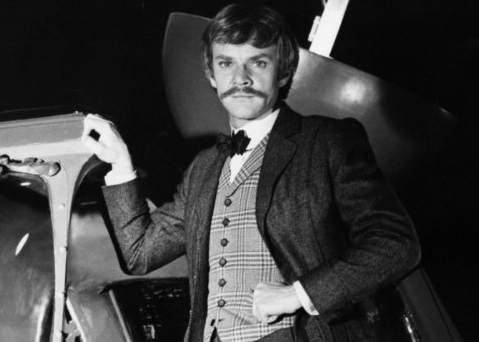Trekkies everywhere owe a big debt to Nicholas Meyer.
The first Star Trek movie, released in 1979, was a crashing bore, and Meyer then brought the franchise back with Star Trek II: The Wrath of Khan, which many feel is the best Trek film ever. Meyer also directed The Day After, which we recently looked back at for TG, and he also directed one of my all time favorite sci-fi fantasies, Time After Time.

Being a big fan of time travel stories, Time After Time is one of my favorite time travel films ever. While it certainly wasn’t a huge box office hit, the film has a special place in the heart of many genre fans.
Personally, I feel it is still a great idea for a movie. Basically, HG Wells invents the time machine, Jack the Ripper goes into the future with it, and Wells has to go into modern day San Francisco to find Jack and bring him back before he kills too many people.
Malcolm McDowell played Wells, Mary Steenbergen played his modern day love interest (they fell in love in real life and married after the film), and David Warner, a great British actor from Morgan, The Omen, Time Bandits and Titanic to name a few, played Jack the Ripper. (Warner Brothers wanted Mick Jagger to play Jack, which is actually not a bad casting idea). In Meyer’s book, The View From the Bridge, he wrote, “Making Time After Time was perhaps the most fun I’ve ever had in the daytime.”
Interestingly enough, Meyer wrote the film “may have been victimized by its early success.” Indeed, Time After Time first previewed in Woodland Hills, a suburb in California’s San Fernando Valley, which went through the roof, and a preview that took place the next day in Toronto did even better.
Instead of opening the film smaller, then branching out to more theaters, Warners gave it a wide release, “perhaps too wide,” Meyer felt. “We were in so many theaters on day one that there was no time for word of mouth to take hold. In the end the picture did do well if not quite as well as those previews had led everyone to hope.”
And Time After Time was an influence on another time travel classic: Back to the Future. As Meyer writes, “Steven Spielberg, producer of Back to the Future, told me that his team had studied Time After Time, running it again and again.'”






